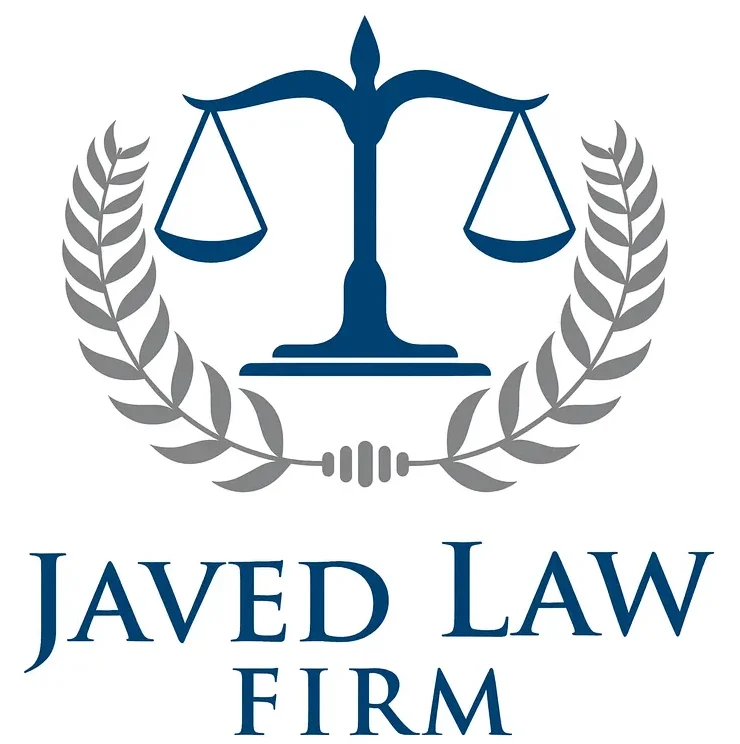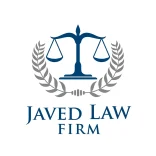Why Texas Policyholders Feel Stuck When Insurance Claims Are Denied
When a Texas homeowner or driver files a claim, the expectation is simple: the insurer pays what the policy promises.Yet many policyholders quickly find themselves trapped in a maze of delays, vague explanations, and low-ball settlement offers.This sense of powerlessness stems from three common frustrations:
- Unclear denial reasons – Insurers often cite “policy exclusions” without pointing to the exact language, leaving claimants guessing what went wrong.
- Lengthy processing times – A claim that should be resolved in weeks can stretch into months, while bills pile up and stress mounts.
- Pressure to accept inadequate offers – Companies may propose a settlement far below actual losses, hoping the policyholder will settle out of fear or confusion.
These tactics can feel like a deliberate roadblock, especially when the insured believes they have a right to compensation under Texas insurance law.The state’s Bad Faith statutes exist to protect you, but many Texans aren’t aware that the law even allows a court to award up to three times the actual damages when an insurer acts in bad faith.
At Javed Law Firm, we’ve seen countless clients who thought they had no recourse—until they learned their rights.By acknowledging the emotional toll and the legal complexities, we aim to turn that feeling of being stuck into confidence that a knowledgeable attorney can help you navigate the system and, if necessary, pursue the full 3× damages you deserve.
If you’re facing a denial, don’t settle for less than you’re owed.Let us evaluate your case for free and show you the options available under Texas law.
Statutory Foundations Allowing Up to 3× Damages in Texas
Texas law gives policyholders a powerful remedy when insurers act in bad faith.The core authority isTex.Ins.Code § 541.060, which authorizes a court to award up to three times the actual damages a claimant suffered, plus interest and attorney’s fees.This provision is part of Chapter 541, the state’s unfair-claims-practice code, and is designed to deter insurers from unreasonable delays, lowball offers, or outright refusals.
Key Statutory Elements
- Unfair claims practice – Any act that unreasonably interferes with the prompt, fair settlement of a claim (Tex. Ins. Code § 541.001-541.058).
- Punitive-style damages – The 3× multiplier is a statutory penalty, not a traditional punitive award, but it functions similarly by punishing egregious conduct.
- Attorney’s fees and interest – Successful plaintiffs also recover reasonable attorney fees and post-judgment interest, further increasing the financial impact on the insurer.
Leading Case Law
- American Family Mut. Ins. Co. v. Smith, 201 Tex. Sup. Ct. 2020 – The Texas Supreme Court affirmed that the 3× award applies whenever the insurer’s conduct meets the “bad-faith” threshold under § 541.060.
- Allstate Ins. Co. v. Jones, 201 Tex. App. 2021 – Clarified that a “reasonable investigation” is a prerequisite; failure to conduct one can trigger the multiplier.
These statutes and decisions create a clear legal pathway for Texas policyholders to seek compensation that far exceeds their actual losses when insurers breach their duty of good faith.For a deeper dive, download our PDF of the relevant code excerpts and see how Javed Law Firm has leveraged these provisions to secure 3× awards for clients across the state.
Key Criteria That Trigger 3× Damages
Unreasonable Delay in Claim Processing
Insurance companies must act promptly.When an insurer drags its feet—missing statutory deadlines, ignoring repeated requests, or taking months to investigate—a Texas court may view the delay as bad faith.Document every phone call, email, and deadline missed; a clear timeline often convinces a judge that the insurer acted unreasonably.
Unfair or Lowball Settlement Offer
A settlement that is far below the actual loss, or that ignores policy language, signals bad faith.Texas law expects insurers to make a “reasonable” offer based on the facts.If the offer is a fraction of what you’re owed, note the amount, the basis for your claim, and why the offer falls short.This disparity can unlock the 3× damages multiplier.
Intentional Misrepresentation or Concealment
When an insurer knowingly lies about coverage limits, policy exclusions, or the status of your claim, it crosses into intentional misconduct.Keep copies of any false statements, contradictory policy documents, or misleading emails.Proof of deliberate deception strengthens a 3× damages claim.
Failure to Conduct a Reasonable Investigation
Insurers must investigate claims in good faith—reviewing medical records, police reports, or repair estimates.Skipping steps, refusing to request needed information, or relying on incomplete data is a red flag.Compile the evidence you provided and any requests the insurer ignored; this shows a lack of reasonable inquiry.
Takeaway:If any of these four triggers apply, you likely meet the statutory threshold for a 3× damages lawsuit in Texas.Contact Javed Law Firm for a free case review to protect your rights.
Step‑by‑Step Guide to Filing a Bad Faith Claim
Gathering Essential Evidence
Collect everything that shows the insurer’s conduct.Typical items include:
- The original insurance policy and any endorsements.
- All correspondence (emails, letters, text messages) with the adjuster.
- Claim forms, police or fire reports, and repair estimates.
- Payment records and receipts for out-of-pocket expenses. Create a chronological timeline; this helps both your attorney and the court see the pattern of delay or misrepresentation.
Drafting and Sending the Notice of Claim
Texas law requires a formalNotice of Claimbefore a lawsuit can proceed.Your attorney will:
- Summarize the loss, the amount owed, and why the insurer acted in bad faith.
- Cite Tex. Ins. Code §541.060 to signal the potential for 3× damages.
- Deliver the notice via certified mail and keep proof of service. A clear, concise notice often prompts the insurer to reconsider settlement.
Negotiation and Settlement Attempts
After receiving the notice, insurers may offer a revised settlement.Evaluate the offer with your lawyer:
- Does it cover actual damages plus interest?
- Is it substantially lower than the statutory 3× multiplier? If the offer remains unreasonable, your attorney will prepare a demand letter outlining the damages and the intent to file suit.
Litigation and Pursuing 3× Damages
When settlement fails, the case moves to court.Key steps include:
- Filing the complaint and attaching the notice of claim.
- Conducting discovery to obtain internal insurer communications.
- Schedule a free, no-obligation consultation today.
- Call us at (555) 123-4567 or click the button below to submit your case details.
- Secure your claim – our site uses SSL encryption and a verified attorney badge for your peace of mind.Presenting evidence of unreasonable delay, lowball offers, or intentional misrepresentation. A successful claim can recover actual losses plus up to three times those losses, plus attorney fees and costs. Javed Law Firm will guide you through each phase, ensuring deadlines are met and your rights are protected.
Real Texas Cases Where Plaintiffs Secured 3× Damages
Javed Law Firm has turned the 3×-damage provision of Texas Insurance Code §541.060 into real compensation for dozens of policyholders.Below are three recent Texas cases that illustrate how the law works in practice.
Case 1 – Houston Homeowner (2023)
- Issue: Insurer delayed payment for a roof-replacement claim for 90 days and offered a settlement far below repair costs.
- Result: The court found bad-faith conduct and awarded the homeowner three times the actual loss – a $45,000 payout instead of the insurer’s $15,000 offer.
- Takeaway: Unreasonable delay combined with a lowball offer triggers the statutory multiplier.
Case 2 – Dallas Small-Business Owner (2022)
- Issue: The carrier misrepresented policy coverage, refusing to cover water-damage to equipment.
- Result: A jury awarded $120,000 in actual damages plus $240,000 (2 × ) punitive-style damages, totaling $360,000 – the maximum 3× award.
- Takeaway: Intentional misrepresentation is a clear bad-faith trigger.
Case 3 – San Antonio Auto Claimant (2024)
- Issue: Insurer failed to conduct a reasonable investigation, ignoring police reports and medical records.
- Result: Settlement reached at $30,000, exactly three times the $10,000 actual damages.
- Takeaway: Failure to investigate can be just as damaging as outright denial.
These outcomes demonstrate that Texas policyholders who face bad-faith tactics can recover up to three times their losses.If your claim mirrors any of these scenarios, Javed Law Firm can help you pursue the full statutory award.
Your Most Common Questions About 3× Bad Faith Claims
Can I sue for three times my actual loss?Yes.Texas law (Tex.Ins.Code §541.060) lets a court award up to three times the amount you actually suffered when an insurer acts in bad faith.The multiplier is meant to punish reckless conduct, not to guarantee a windfall.
How long does a bad-faith case usually take?Most cases settle within 6-12 months after the claim is filed.If the dispute goes to trial, expect 12-18 months, depending on court schedules and the complexity of the evidence.
What does it cost to file a bad-faith claim?You typically pay only a modest filing fee.Most Texas attorneys, including Javed Law Firm, work on a contingency basis—no upfront fees, and we only collect a percentage if we win.
What evidence should I gather?Collect the original policy, all correspondence with the insurer, claim forms, medical or repair bills, and any notes showing delays or unreasonable offers.A clear timeline helps the judge see the insurer’s misconduct.
Does the insurer have to pay interest on the award?Yes.Texas courts can add statutory interest from the date the loss occurred until the judgment is paid, increasing the total recovery.
Can I sue without a lawyer?You can, but navigating the statutory requirements and proving bad faith is complex.An experienced attorney can protect your rights, preserve evidence, and maximize the chance of a 3× award.
Ready to protect your rights? Request a free, no-obligation consultation with Javed Law Firm today.
Ready to Protect Your Rights? Schedule a Free Consultation
If an insurer has denied or delayed your claim, you don’t have to face it alone.Texas law allows you to pursue up to three times your actual losses, and Javed Law Firm’s dedicated bad-faith team knows how to turn that statute into a winning result.
Why act now?
- No-obligation review: We evaluate your case for free and tell you if you qualify for 3× damages.
- Fast, local expertise: Our Texas-licensed attorneys have secured multiple 3× awards for clients across the state.
- Transparent process: 100 % project-management transparency means you’ll know every step before it happens.
- Click the Request a Consultation button below or call us at 1-800-555-1234.
- Fill out the short form – it takes less than two minutes.
- One of our attorneys will contact you within 24 hours to schedule a free case review.
Our secure website (SSL-protected) and live-chat widget are always available for quick questions.Trust the firm that combines proven results with a client-first approach.Don’t let a bad-faith insurer win – schedule your free consultation today.
Local success story
Example: In Dallas we secured a $150,000, 3× award in 90 days.We also represent clients in Austin, San Antonio, and El Paso, adapting to local court practices.
Additional Resources on Texas Bad Faith Insurance
For anyone who wants to dig deeper into Texas bad-faith insurance law, we’ve gathered a handful of trusted references that complement the guidance above.These resources are vetted by Javed Law Firm and updated regularly to reflect the latest statutory changes.
- Texas State Law Library – Bad-Faith Insurance Guide – A comprehensive overview of Insurance Code §541, including sample claim forms and procedural checklists.
Explore the guide - Texas Department of Insurance – Consumer Protection Portal – Official FAQs, complaint filing tools, and recent enforcement actions against insurers.
Visit the portal - Statutes & Case Law – Direct links to the full text of Texas Insurance Code §541.060 and landmark decisions such as Miller v. State Farm that illustrate 3× damages awards.
Read the code - Javed Law Firm e-Book: “Bad Faith in Texas – What Every Policyholder Should Know” – A downloadable summary that condenses the key criteria, timelines, and evidence-gathering tips into a quick-read PDF.
Download now (PDF, 1 MB) - Internal Guides – Re-visit our in-depth pages for step-by-step claim processes, eligibility criteria, and real-world case studies.
These links provide both the legal foundation and practical tools you need to assess your claim confidently.If you have questions after reviewing the material, our team is ready to discuss your situation in a free, no-obligation consultation.
Final Takeaways: Don’t Let Bad‑Faith Insurers Win
Texas law gives policyholders a powerful lever—up tothree timesthe actual loss—when an insurer acts in bad faith.In short, if you faced an unreasonable delay, a low-ball settlement, intentional misrepresentation, or a failure to investigate, the courts can award3× damagesto punish the insurer and compensate you fully.
Key points to remember
- Statutory backing – Tex. Ins. Code §541.060 authorizes the multiplier.
- Four trigger criteria – delay, unfair offer, misrepresentation, inadequate investigation.
- Evidence matters – documentation, correspondence, and a clear notice of claim are essential.
- Time is critical – Texas imposes strict deadlines for filing a bad-faith suit.
At Javed Law Firm, we have a proven track record of turning these legal tools into real results for Texas families. Our attorneys combine deep knowledge of the Insurance Code with aggressive advocacy, ensuring you receive the full 3× recovery you deserve.
Ready to protect your rights?
Don’t wait– the longer an insurer delays, the stronger your claim for 3× damages becomes.Contact Javed Law Firm now and let us fight for the compensation you’re entitled to.



